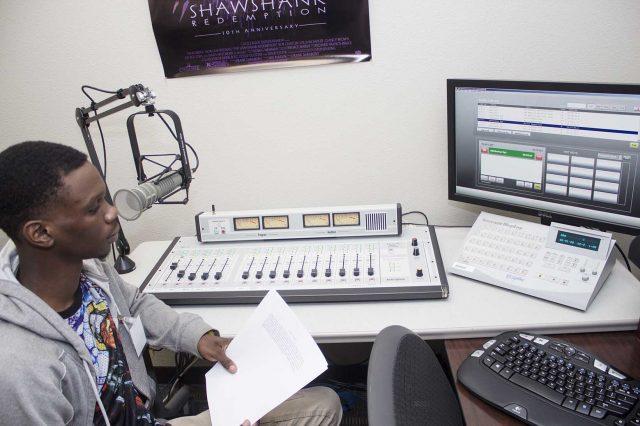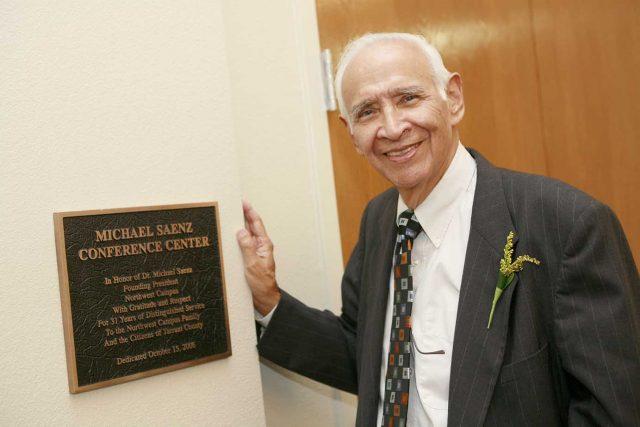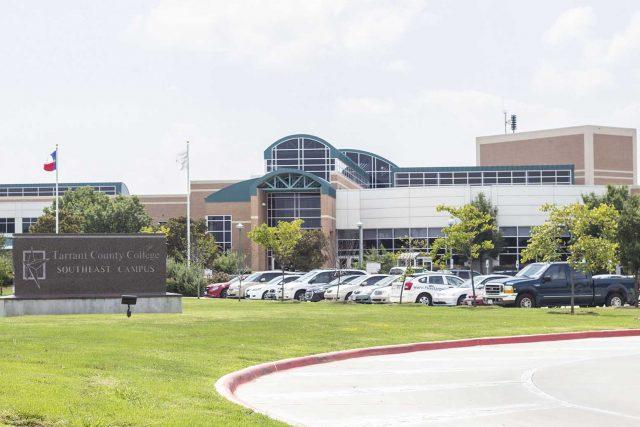By Ross Ocampo/ reporter

Photos by Bogdan Sierra Miranda/The Collegian
The radio, television and film program is one of many at TCC that allows students to engage, experience and interact hands-on with what it’s like to be in the media industry.
From classes of traditional filmmaking and broadcast to newer classes that focus on podcasts and livestreams, RTVF offers a wide selection of courses that students can pick and choose to their interests.
“We get a lot of students who say, ‘I want to do this. I want to do movies. I want to do audio,’” program coordinator Adrian Neely said. “But with all these different opportunities, it almost allows you to have an understanding of everything.”
Neely said he’s working on providing students the latest technology to make sure the program is state of the art, making the courses dynamic and progressive.
“We always try to stay on top and make sure students are getting the latest,” he said. “In any technical field, there’s already this planned obsolescence in everything, so you have to make sure you’re on top of everything so you’re ready.”
RTVF student Ross Romilly-Smith has been taking field production, advanced audio production and advanced editing courses, which are offered in the program.
“My favorite learning style is actually getting my hands on editing something or actually putting my hands on a camera and knowing how to operate it,” Romilly-Smith said. “It’s really learning those hands-on stuff that you can’t learn from sitting down and getting lectured for an hour. That’s not the way I learn.”
Romilly-Smith is also a student assistant for some of the classes he’s taken previously, such as the studio course where students learn about news broadcast and what happens behind the scenes in a news studio.
NE Campus’ NIMC is one of TCC’s state-of-the-art facilities. After a fire in 2012, the building was written off as a 100 percent loss due to extensive smoke damage, but it was rebuilt.
Jerry Zumwalt, who is now NE vice president for community and industry education, led the RTVF program through the fire’s aftermath.
“Those of us who worked in this building had a lot of work to do for the realignment of things,” Zumwalt said. “We were fortunate because it was all covered by insurance, and there was support from the district to bring everything to standards.”
Even with the latest technology, Zumwalt said the program courses don’t cost any more than other TCC classes and often save students thousands of dollars compared with taking them at a university.
The program also offers a capstone course, which is an internship aided by an advisory board of industry professionals who have connections in media corporations. Such internships can lead to jobs after graduation.





























